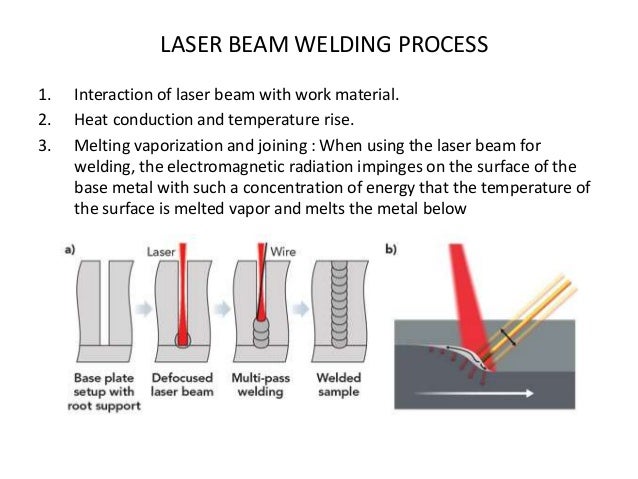This welding works on same principle of electron beam machining.
Electron beam welding working principle.
When a high jet of electrons strike at welding plates its kinetic energy converts into heat energy.
Working principle it works on the principle that when a high velocity beam of electron that has kinetic energy strikes the two metal pieces the kinetic energy of the electron transformed into heat.
The electrons strike the work piece and their kinetic energy converts into thermal energy heating the metal so that the edges of work piece are fused and joined together forming a weld after solidification.
The intensity of heat produced is so much that it melts the two metal pieces and fuse them together to form a strong weld.
When the electrons strike the surface of the metal they give up the bulk of their energy as heat and this goes to melt the metal.
Dmitri kopeliovich electron beam welding is a welding process utilizing a heat generated by a beam of high energy electrons.
In electron beam welding the kinetic energy of the electrons is converted into heat as they strike the workpiece.
Ebw is often performed under vacuum conditions to prevent dissipation of the electron beam.
Electron beam welding ebw is one another form of the fusion welding process or power beam processes in which the melting and joining of metals is done by heating them with an high velocity electron beam.
The workpieces melt and flow together as the kinetic energy of the electrons is transformed into heat upon impact.
This heat is further used to weld two welding plates.
Electron beam welding in vacuum utilizes the kinetic energy of electrons traveling with high velocity in a high vacuum 10 3 to 10 5 mm hg.

